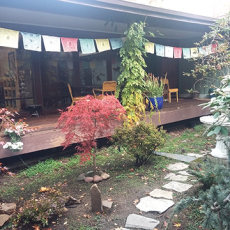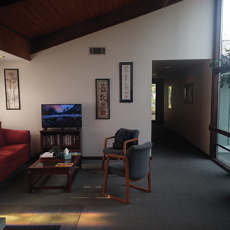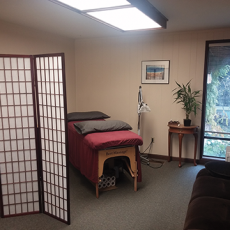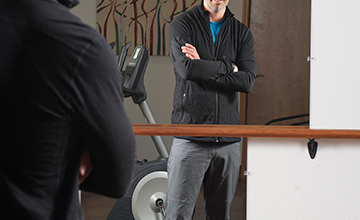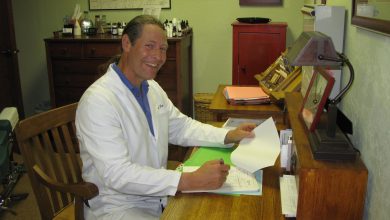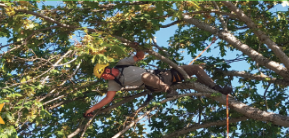Kolpia Counseling Services- Addiction is NOT an Incurable Disease
For the past 16 years, Kolpia has provided treatment to thousands of individuals in our community needing support for drug and alcohol abuse and dependence. Over the past 2 years they have redesigned their programs to meet the specific needs of those struggling with opioid addiction, as well as co-occurring mental health and substance use disorders. We recently spoke with Integrative Medical Director Joshua Graner MS, LAC about the work Kolpia is doing to meet the ever growing need within our community.
Joshua, thank you very much for speaking with us today. To begin with can you please give us a little history and overview of the services that Kolpia provides to the community of Southern Oregon.
Thank you Shields. Kolpia was started by Steve and Lauren Fogleman and has been providing addiction treatment and counseling for over 15 years here in the Rogue Valley. In 2014, Kolpia’s ownership and management changed hands, and I was brought in to develop wellness and integrative medical programs for the addiction and mental health clientele that Kolpia serves. Once I had a chance to meet with other community providers and survey the needs of Jackson County, I realized we had a much larger problem than many people were willing to acknowledge or address. It became clear that the most underserved population in our county are those who are dually diagnosed with mental health and substance abuse problems. Some organizations provide treatment for substance abuse while others provide treatment for mental health, but few have the ability or resources to adequately address the needs of people who need treatment for both at the same time. For example, many people who are diagnosed with alcohol dependence also suffer from depression, anxiety or PTSD. The question then became “can we adequately treat substance abuse when the person is suffering emotionally?” As a result of this situation we concentrated our focus on creating programs and hiring staff who have training in providing both mental health as well as substance abuse treatment.
In addition to this we also recognized that by addressing a person’s physical wellness, this would not only improve treatment outcomes but also improve their quality of life. The integrative wellness services we provide include acupuncture, nutrition counseling, massage, yoga, meditation, taiji, mindfulness practices and a variety of life skills aimed at educating and empowering our clients to slowly and sustainably change their perceptions and behaviors to support their overall health and happiness.
For the past several years there has been an ongoing effort to educate the community about the widespread problem of heroin and opiate addiction. Will you please say more about this and talk to the scope of the problem?
Yes, recently there has been a lot of attention, education and outreach regarding dependence and abuse of opioid drugs such as heroin, methadone, and prescription painkillers like oxycodone, vicodin, and fentanyl. Much of this initial outreach has been to physicians, educating and encouraging them to prescribe less of these medications and for shorter periods of time as they are often directly responsible for physiological dependence, which sometimes results in heroin use and dependence. I am met with stares of confusion and incredulity when I mention that Southern Oregon has per capita one of the worst opioid dependence problems in the United States, and that much of this problem can be directly linked back to the prescription practices of physicians over the past 15 year and the extremely addictive nature of opioid painkillers. I get a lot of comments like “well that would never happen to me,” or “why can’t they just stop?” This is a very complex and emotionally charged question that I hope to summarize in a way that is clarifying but not offensive. First, let me paint a scenario for you. A patient, we’ll call her M, was in a car accident 10 years ago where she fractured her foot, as well as suffered severe whiplash and back pain. Her fracture was surgically repaired, casted and she did 10 weeks of physical therapy once the bone mended. During that time she was unable to work, started feeling anxious and depressed and had difficulty sleeping. Over the course of a few months her physician gave her Xanax for the anxiety, Wellbutrin for the depression, and Ambien for the insomnia. At six months after the accident, she is not working, is on disability, and is suffering severe pain in her foot, low back and neck. In addition she feels even more depressed, has difficulty going into public places with lots of people and gets on average 2-3 hours of fitful sleep per night. She is still taking all the drugs listed above at higher dosages plus Gabapentin for nerve pain and an over-the-counter laxative for her constant stomach aches. Her life is unraveling. At one year past the accident, her physician is concerned about her dependence on the opioid pain medication so they increase the Xanax to help with the anxiety from the withdrawals and they do a rapid taper, drastically decreasing the opioid medication in a short period of time. Rapidly taking her off of her opioids makes all of her symptoms worse and she goes through severe withdrawals. A former coworker offers her some of her own pain meds and says that she can get her some heroin tablets if she needs them to help with the withdrawals and the pain. Now 10 years later M is in my office having tried and failed multiple times to get off of injectable heroin.
This problem was not one of willpower but of physical dependency that was initiated by a physician who was doing what they felt to be the right thing. It is a problem of education for both prescribers as well as patients, and Southern Oregon is really leading the charge now for educating doctors and patients alike about the safe and effective use of these drugs. In the meantime we still have thousands of people in our community who are already dependent, unwell, feeling ashamed and don’t know who to turn to for help. Many of our patients come in traumatized feeling that they are unable to trust the medical community so a lot of our work is in helping to repair this relationship between patients and providers.
Jackson County has been noted as the top county in the entire state of Oregon for accidental heroin overdose. Please say more.
Yes, this situation was brought to light in 2006 by Jackson County Medical Examiners stating that on average one of our citizens in our community was dying from accidental overdose of prescription opioids each week. This is a huge metric for a county that has only 205,000 people. This information motivated physicians like Dr. Jim Shames, Medical Director for Jackson County Health and Human Services, to do some more investigation. It is now recognized that Jackson and Josephine have one of the worst opioid dependence problems and accidental overdoses in the United States. This is not surprising considering that in Jackson County alone, 452,000 prescriptions for controlled substances were filled in 2012 for a population of 205,000 people, and a majority of those were opioids. This is a huge problem but one that is representative of a larger national problem. The US has less than 5% of the world population but consumes roughly 80% of the world’s supply for painkillers. Now in 2015, our numbers of accidental overdoses from prescription opioids has reduced significantly but now with less opioid medications available through legal means, they have become more expensive on the black market, which means people are turning to heroin which is often cheaper but also dirtier and more dangerous. Now we are faced with the problem of increased heroin addiction and accidental heroin overdoses. There has been a call to action by our medical community to provide support and treatment for these community members, and this is one of the challenges that Kolpia has decided to take on directly.
Where does Oregon stand in national rating?
Oregon is one of the top 3 states whose citizens are struggling with opioid abuse or dependence.
Joshua, please define addiction and why addiction occurs.
This is also a very complex question and there are a lot of opinions that range from problems of morals and willpower, to an irreversible genetic issue that can only be treated by medication and through intense lifelong treatment. I would like to share my own opinion with you, but first we have to define what addiction is. Any ongoing behavior or action that has a negative effect on one’s health, state of mind, state of emotion, relationships, finances or safety is considered an addiction. Many people focus on the ease or difficulty of stopping something as what defines it as an addiction, but clinically an addiction relates more to how the ongoing behavior affects the person. With this definition there are many types of addiction. In addition to drugs, I see people addicted to shopping, multitasking, competition, physical appearances, food, porn, or the need for recognition. One of the saddest things I witness is walking through Lithia Park and noticing how many parents have their faces buried in their phones while their children play around them. I see this all the time and according to the definition above, it is affecting their relationships and the safety of their children.
So, then why do these pathological ongoing behaviors exist? My opinion is that many of the behaviors we engage in are in the pursuit of emotional self regulation. For example, we see someone that we love and our desire is to hug them, thus fulfilling an emotional need in that moment. Another example is 3pm rolls around at work and we are feeling in a bit of a slump so we reach for a second or third cup of coffee. If we look objectively at our actions we can see that many of them are actually emotionally driven, and it is through our actions that we are able to regulate and harmonize our emotions in order to deal with the stressors of daily life. Once a behavior or action begins to negatively affect one’s health or state of mind, then it becomes a problem. I don’t believe that drugs and alcohol are at all bad, which is ironic as an addiction specialist. It is just that something is called a drug because it has the ability to greatly alter our physiology, which means that if a person develops a behavior of overusing a drug to regulate their emotions in order to feel joy, relief from pain, or to fulfill a desire for novelty, since the drug can quickly and powerfully change our physical and mental state, it can also lead to a form of physical and mental illness that is referred to as drug addiction.
If a person is dealing with childhood trauma, abuse, depression, anxiety, clinically poor self esteem, schizophrenia or any number of emotionally challenging conditions, the likelihood that drug addiction will occur increases exponentially. This is one of the main reasons that it is important to identify and attempt to address the underlying causes of suffering instead of hyper-focusing on the addiction. I am sure some of your readers are saying ”well, of course…” but the reality is that this is actually a novel approach to treatment in the US.
Please talk about how anxiety goes hand in hand with addiction.
In the hundreds of assessments and interviews I have done with my patients over the past few years, the majority of them identify anxiety or an intense, general feeling of unease as the primary trigger for abusing a drug or relapsing into another cycle of addiction. Again, it relates to emotional self regulation. Many of my patients who are recovering from opioid addiction say that painkillers and heroin often did not do much for their physical pain, but they helped with their emotional pain. PTSD is a form of anxiety disorder and has gotten a lot of press lately. If a person has PTSD, the likelihood that they will develop an addictive pattern of behavior is high compared to those who are not suffering from that or other anxiety conditions.
How quickly can an addiction take hold?
Addictionologists, doctors who specialize in addiction, have done a lot of work on this and the most recent thought is that it takes as little as 5 weeks for a person who is taking a prescription painkiller to become physically dependent. This does not mean they will become addicted, but that their body now relies on the drug to fulfill a physiological need that was once performed by their own body. Some people that develop a dependence are tapered off slowly and appropriately or are able to have the support for the withdrawal period, but many people do not have that support or are tapered rapidly, and when combined with one of the emotional conditions we talked about such as anxiety, there is a high chance of addiction.
At Kolpia Counseling you guys are providing a large array of services, tell us about these.
We recognized early in our program development that for people struggling with addiction and mental health challenges, it is necessary to address the person using a multimodality approach. We do not treat conditions but address the various needs of the individual. As such we offer individual and group counseling, nutrition and wellness education, meditation, yoga and tai chi instruction, acupuncture treatments, individual nutrition counseling and help gaining access to other resources and services in the area.
Joshua, the approach you take at Kolpia Counseling really distinguishes your organization. Please tell us more.
It is surprising how many treatment centers and agencies in the United States still rely on the punitive, tough love form of treatment which often reinforces shame, guilt and trauma. At Kolpia we treat all of our clients with a high degree of respect. We recognize and reinforce that recovery takes courage and is difficult and that we are here to support them in their recovery and healing. Also as I mentioned above, our integrative, holistic approach to treating the person rather than the condition creates a clinical relationship where our clients feel that we are invested in their health and success more than just the outcomes of an addiction-focused treatment.
Many times people have been traumatized with traditional treatment methods. Please say more and then how you remedy this at Kolpia Counseling.
Our respectful and compassionate approach has helped many of our clients who have had negative experiences or trauma with treatment in the past. The majority of our clients have gone through various other treatment programs, and we regularly receive feedback that our attitude, consistency and kindness are the main things that keep them coming back for treatment.
You yourself are a licensed Traditional Chinese Medicine practitioner. How does your training and skills come into play at Kolpia?
The foundational philosophies of Traditional Chinese Medicine (TCM) are based in the ideas and the practice of holism, where the many functions of the various systems of the body are all taken into consideration when treating a person for a specific condition. It is a science and deep study of mind-body-emotional interconnection and provides a means to put those ideas into practice through acupuncture, herbal medicine, nutrition, meditation and physical movement practices such as Tai Chi and Yoga (Chi Kung). Also one of the main guiding principles in TCM is to unblock that which is stagnant and supplement that which is deficient. This can be seen physically where a person has pain which causes muscular contraction (stagnation) resulting in deficiency of oxygen, glucose, vitamins and minerals that are needed for the muscle to be healthy. Through acupuncture, massage, and specific movements, it is possible to release the spasmed muscle, which then allows a free flow of healthy blood into the tissue, reducing pain and improving function in the short and long term. This can also be looked at psychologically where someone has a limiting idea, belief or story that keeps them trapped in cycles of shame, guilt or fear. By helping a person using mindfulness meditation and acupuncture it is possible to reduce the intensity of the response to that idea or belief, which will then change over time to become less damaging to the psyche, hence breaking the cycle of suffering that underlies the addictive patterns.
I would love for you discuss some of the outcomes that Kolpia is helping individuals to achieve.
We regularly receive feedback from many of our clients who express their gratitude for helping them to make changes that have greatly improved their lives. We periodically give validated outcomes assessments to our clients that ask them to rate their experiences with us and their perception of the effectiveness of treatment. Reviewing these assessments is often an emotional experience because we are objectively seeing the positive impact we are having on our community. This always puts more wind in our sails as we celebrate the growth and healing that is happening every day, even if we sometimes lose the forest for the trees.
What message would you have to anyone out there currently struggling with addiction issues?
You are a loved and respected and needed member of our community. When you are ready to address your suffering, just know that it is a journey filled with failures and successes which are all part of the path. You are capable of more than you know and there is support available to help you find and use your inner and outer resources for your healing.
Thanks so much for speaking with us today and for the great work your organization is doing.
Of course Shields. As always it is my pleasure.
Learn More:
Kolpia Counseling Services
607 Siskiyou Blvd, Ashland
836 E. Main St, Medford
(541) 482-1718
Check out their website here

